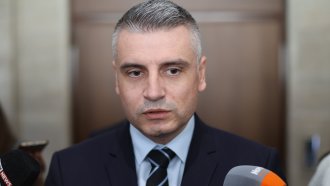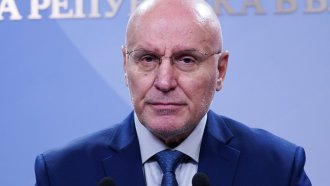Insurance Company Collapse Surprises Financial Regulator
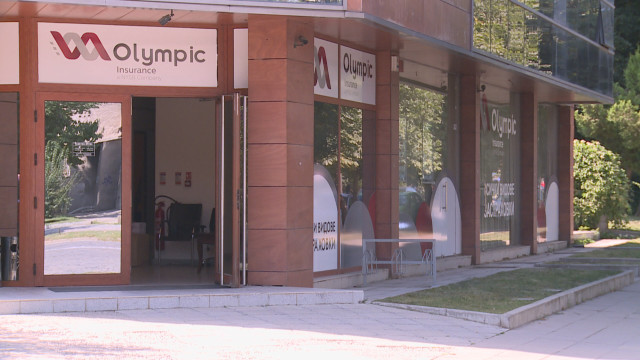
Late last week the Cyprus-based insurance company Olympic declared bankruptcy leaving about 200’000 Bulgarian car owners with invalid mandatory car insurance (the so-called civic duty insurance). A report from May of this year by the Audit Office of the Republic of Cyprus concluded that Olympic cannot fulfill the requirements of the Solvency II Directive of the EU. This led to the Cyprus supervisory body, responsible for insurance, to revoke Olympics’ license on May 8. The company appealed the decision but the decision was later reaffirmed. The Bulgarian FSP announced the fact on its website on July 20.
Most of the Cyprus-based company’s client base is in Bulgaria.
The seemingly sudden collapse of the company left many to question how could the Bulgarian Financial Supervision Commission, in charge of the security of the financial non-banking sector, overlook the estimated fourth-largest provider of car insurance in Bulgaria going bankrupt.
The Bulgarian National Radio reported on Thursday that the Cyprus Audit Office had warned about risks concerning the Olympic company as early as 2015. But why have the relevant Bulgarian institutions not taken action regarding these assessments is still unclear.
The head of the FSC, Karina Karaivanova has not assumed any responsibility for the incident. She has not spoken publicly on the matter at all, except for a statement issued via the institution’s press office, in which she blames her deputy Ralitsa Agayn for neglecting to inform her and her colleagues about the situation. It became apparent from this statement that neither she nor the rest of the managing body of the FSC had any knowledge of Olympic’s collapse before August 17, which is three months after the company had had its license revoked and apparently almost a month after the fact was announced on the commission’s own website.
At the beginning of the following week, on Monday, both the cabinet and the head state prosecutor, Sotir Tsatsarov took parallel actions to remove Agayn, because of failure to assess the risk of the insurance company’s collapse.
On the prosecutors’ side, on Monday the Supreme Cassation Prosecutor Office tasked the State Agency for National Security to find out the circumstances surrounding the bankruptcy. According to the prosecutors, the inquiry should be focused mainly on Agayn, although as of earlier this year the FSC underwent a structural change whereby most responsibilities, which till then were individual to high-level management, were transferred to a collective managing body consisting of five members and headed by Karina Karaivanova.
Meanwhile, the largest parliamentary opposition party BSP submitted to Parliament 61 signatures, calling for a special parliamentary session with a two-item agenda: one, the collapse of the Trade Registry (as of today, down over two weeks), and two, the government’s actions after Olympic declared bankruptcy.
During the session, Agayn resigned her post but stated clearly that she is doing this out of moral obligation and she maintains that the commission has done nothing wrong regarding this case.
To accusations by BSP that the company had been dumping prices and the commission has ignored, she replied that according to the commission’s data from the past few years, Olympic has sold policies a little over the average market prices, which cannot be evidence for dumping prices.
Agayn gave an interview to bTV following her resignation, in which she claimed to have warned her colleagues of the risk but blamed communication issues within the commission for the failure for those to be addressed.
During the parliamentary session, BSP also proposed that one of the two funds, dedicated to covering insurance risk, should cover the losses of the company’s clients. BSP leader Kornelia Ninova, in fact, took to Facebook earlier this week for similar reasons. She had taken the opportunity for some PR apparently, following PM Boyko Borissov’s announcement that the government will not reimburse clients who have lost money to their policies, as those would have to come out of the taxpayers’ pocket. Ninova argued that he is lying and that there is a fund dedicated to this type of circumstances.
In fact, there are two funds related to the case but none apply in the way she has implied. One is for covering costs when the person responsible for an incident has no insurance; the other normally would cover losses from policies made with an insurance company gone bankrupt but this only applies to Bulgarian companies, whereas this one is not.
Still, BSP submitted a proposal to Parliament for using the latter fund for the reimbursement but the motion was rejected in the vote.
As for claims regarding the policies, made prior the policies expiring (i.e. before they expired on August 17), they will be covered by the Cyprus fund via the Bulgarian fund. That is, holders of insurance in Bulgaria will submit their insurance claims to the Bulgarian fund, which will later be reimbursed by the Cyprus fund.
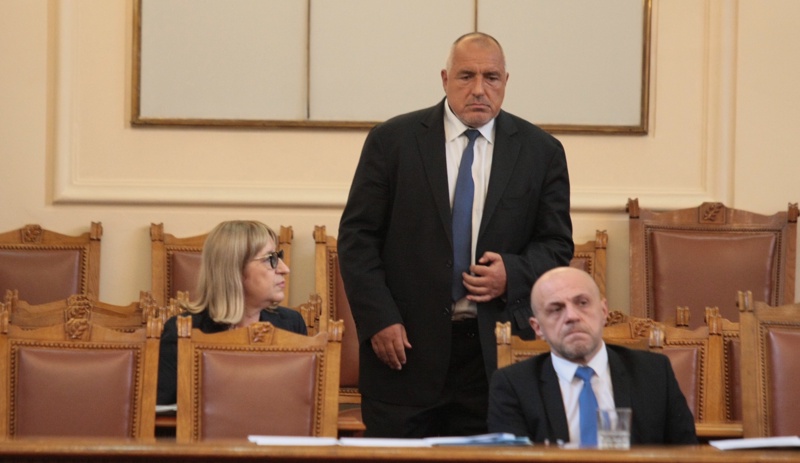
If We Are Lucky, We Will Have a Trade Registry: Prime Minister Boyko Borissov
If we’re lucky, the Trade Registry will be up and running by the end of the week, PM Boyko Borissov said during his hearing in Parliament on Tuesday regarding the unprecedented collapse of the Trade Registry two weeks ago. Borissov announced earlier – on Sunday – that the registry will be online by Wednesday but that turned out to be an overstatement, as has since the later announcement, too.
“The crisis has been dealt with. The Electronic Government Executive Agency has assured me that we will have a working Trade Registry at the end of the week”, he said to Parliament, after which he quickly provided a condition: “if we are lucky.”
The phasing reminded of the now former head of the Registry Agency, Zornitsa Daskalova, who said amid the crash that “these things happen.”
The Trade Registry compiles data and all official documentation of all private profit companies and non-profit and non-governmental organizations in Bulgaria. Inputting data into the system is a key part of procedures concerning nearly all deals or structural changes of those organizations. None of those can be executed or finalized without a working Trade Registry.
Boyko Borissov declared to Parliament on Tuesday that all the data from the registry’s compromised drives till July 17 has been fully recovered. He said the government has sought out an expert from the production company of the drives to come over and help with reviving the data.
During his account to Parliament Borissov admitted that the Registry Agency had been aware of the problems and risks in the Trade Registry’s systems and their exploitation for the last three years. It is questionable, however, to what extent has the agency used this knowledge appropriately, as it finally crashed, unable to recover for two weeks and counting. It seems the risks, identified three years ago have not been mitigated properly. Borissov accounted to some of the measures the agency actually took to mitigate the risks of system failure, having been aware of them for three years, but those were taken two and a half years after the risks were identified.
The agency signed a contract with the company Telelink for 3.6 million leva in December 2017 to address some of the problems – including expanding the registry’s disk array capacity - identified in two separate risk assessment reports. The first report is from 2015 and the second - from 2017. The first is developed by the company in charge of most state and municipal IT systems, Information Services, and the other - by CNsys. Regardless, the system crashed on August 9 and 10 due to four separate discs totaling in 25 TB of data failing over the span of less than 24 hours.
After the former head of the agency, Zornitsa Daskalova resigned, a new head of the agency has been appointed. As her predecessor, Gabliela Kozareva is also thought to be connected to the infamously controversial DPS MP and media mogul Delian Peevski. The far-right coalition and ruling coalition partners the United Patriots proposed Kozareva take over the Registry Agency.
Boyko Borissov was questioned by journalists after his parliamentary hearing about possible connections between Kozareva and Peevski:||Bulgaria, news, Karakachanov, Mi-29, Mi-17, Mi-24, Su-25, Trade Registry, Boyko Borissov, machine voting, Olympic, Olympic insurance, Bulgarian banking sector, ERMII“I don’t know her. I only met her today. Ask the people who recommended her.”
He went on to explain that when ruling in coalition one cannot appoint everybody, and appointing certain officials are certain partners’ responsibility.
Meanwhile, the non-parliamentary opposition coalition Democratic Bulgaria called on the European Commission to appoint an independent inquiry to investigate the reasons for the crash of the Trade Registry. DB insists the investigation is carried out with the help of foreign experts and that the Commission guarantees the transparency and independence of the procedure.
In its written position, DB points out that failing to recover the registry as well as it being non-operational due to the crash violates EU law. Keeping an electronic registry is one of the requirements of Bulgaria as a member of the EU.
“This is one step further in degrading the trust in our country as a suitable destination for investment and business development within the common European market.”, DB writes
The coalition also asserts that the new head of the Registry Agency is merely a political appointment with no expertise whatsoever in the field of electronic government.
President Roumen Radev also joined the many voices of criticism. In his words, both the case of the insurance company Olympic’s bankruptcy and the crisis with the Trade Registry, it is not a question of the negligence or incompetence of several government officials; it is a question of lack of transparency and abandonment of responsibility across the board, without which stateness could not exist. Regarding both, Radev said that the problems run much deeper than the government lets on.
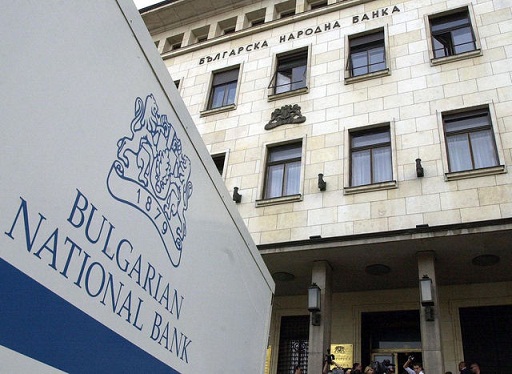
New Massive Testing of the Banking Sector to Begin in the Next Months
A new massive array of testing of the Bulgarian banking system will begin in September or October and will likely end in June or July 2019.
The tests are part of the government’s action plan for becoming a member of the European Banking Union and the so-called euro waiting room, the ERMII, which was approved on Wednesday. It is likely that the first months of the process will be spent in preparation including selecting and appointing consultants and auditors, while the actual testing will begin early next year. The procedure then will be led by the European Central Bank.
Only once has the Bulgarian banking system been subjected to such massive testing, in 2016. The motives then were primarily to regain trust in the system after the collapse of the fourth largest Bulgarian bank, the Central Corporate Bank. The results of the previous tests were announced rather uneventfully and matter-factly. They were primarily positive results, with only two banks, the Bulgarian Investment Bank and Investbank, having the need to increase their capital, according to the test results.
The European Commission expressed certain concerns as to the integrity of the procedures regarding the tests but those did not assume the form of official signals of result manipulations or otherwise compromised procedures.
The expectations are for this procedure to be much stricter compared to the previous one. The stakes this time are higher, especially from the testers’ end. The ECB Banking Supervision will be part of the process and it will seek to assert for itself the actual state of the Bulgarian banks. If admitted to the banking union, the ECB Banking Supervision will be in charge of supervising Bulgarian banks.
The testing of the banking system is the toughest of the six commitments the Bulgarian government made as conditions for entering the euro waiting room. The EU promised that Bulgaria will be accepted into ERMII the same day as it is accepted in the Banking Union.
Entering the Banking Union, however, might prove harder than the government lets on. The ECB implied in July that a year might not be enough for Bulgaria to be admitted to the Union. One year is declared as the government’s desired deadline for admission. No other country outside the Eurozone is a member of the Banking Union.

National Lottery on air
The National Lottery is Number One Advertiser in 2018
Vasil Bozhkov’s lottery games’ company, National Lottery is the largest advertiser in Bulgaria in the first half of 2018, according to a report by Media Club, Sega Daily reports.
Although direct advertisement of gambling is banned by law in Bulgaria, the National Lottery has spent the staggering 13 million euro for TV ads only for the first six months of the year. The company spent 23 million euro for TV advertisement for 2017 according to Media Club.
In comparison, all three Bulgarian mobile operators have spent 5-6 million euro each for TV ads, and the largest advertisers from the financial sector have collectively spent less than the National Lottery on ads during the first half of the year.
The gambling businesses apparently are thriving and advertising more and more aggressively, regardless of the government’s promises to take action and amend laws that provide loopholes leading to having a company providing a product, banned from direct advertising, be the largest TV advertiser in Bulgaria by a landslide.
In Spring Vice PM Valery Simonov proposed amendments to the Gabling Act to restrict advertising and sale of lottery tickets (which currently could be found virtually everywhere: convenience stores, supermarkets, newspaper stands, etc.) but the Parliament decided to send the bill for notification to the European Commission, thus failing the procedure which would have put the amendments to debate, readings and eventually to a vote.
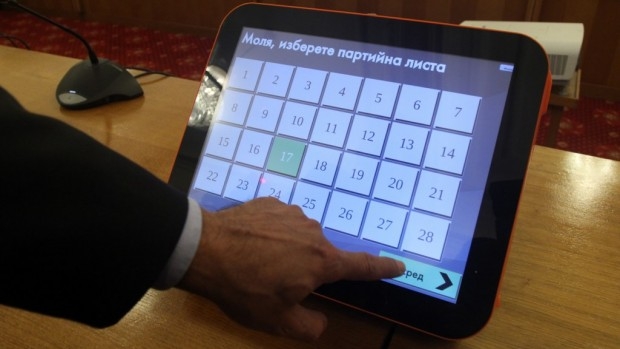
The Central Election Commission Opened a Procurement Procedure for Voting Machines
The Central Election Commission opened a public procurement procedure for assessment of all companies, which supply voting machines. The commission is currently appealing the Sofia Administrative Court’s ruling, which obligates the commission to implement machine voting in all voting sections in a matter of six months. Regardless the elections’ administration has decided to take action to the court’s decision’s end. The higher instance will most likely rule the same way if the Elections Act is not amended by that time.
The current procurement’s aim is for the commission to be able to provide estimate prices for the production, purchase, short or long term rent, and delivery to Bulgaria for at least 12’500 special devices, as well as logistics costs for delivering them to each voting section on election day, warranty and outside warranty support, staff instruction and so on. The procurement also calls for a comparative analysis of the pros and cons of the alternatives.
The price of the procurement is an estimated 12’500 leva and should be completed within two months of signing the contract.

Su-25
Pouring Millions is Soviet Military Equipment Must Stop: Democratic Bulgaria
The non-parliamentary opposition coalition Democratic Bulgaria issued a statement, reacting to the most recent procurement for millions for repairs and maintenance of Soviet military equipment.
“The only winner from pouring hundreds of millions into in old Sovietet equipment is the Russian Federation, Bulgaria does not increase its military capacity and is losing the trust of opts NATO allies.”
The coalition reminds that this is the third of a series of procurements for repays and maintenance of aviation machinery, produced in the Soviet Union.
The first procurement was for MiG-29 repairs, which cost 80 million leva. The next was for Mi-17 and Mi-24 repairs, totaling a 31 million leva. The most recent is for 14 Su 25’s, whose threshold is set at 80 million leva.
During the current administration have been or are planned to be spent over 200 million leva for an essentially redundant Soviet military equipment.
DB insists that instead of spending millions to maintain 40-50-year-old equipment so it could be used another 20 by the Bulgarian aviation forces, it should invest that money to reequip the military with modern equipment. Moreover, in DB’s view, the current spending go against Bulgaria’s very own declared aim to modernize its military equipment.
“The only beneficiary of the current state of affairs is the pre-selected winner of the procurements: The Russian producer of the equipment.”
DB also saw an ulterior motive in keeping some procurements within a threshold that would allow them to go forward without the need for the Council of Ministers’ approval.
“The government and the PM should know, however, that regardless of the efforts for this procurement to be pushed forward stealthily and for the responsibility for such expenses to be transferred solely to the Minister of Defense, for such massive spending the responsibility should be taken on the highs of levels.”
Minister of Defense Kasimir Karakachanov has declared his intent to invest serious amounts in the Soviet equipment until Bulgaria purchases new equipment. Many experts, including President Roumen Radev have expressed serious doubt in the need to spend such massive amounts in the old equipment.
Вие ни познавате. Нека го направим взаимно!
Отделете няколко минути за анкетата и ни помогнете да сме ви по-полезни.
За честна и независима журналистика
Ще се радваме, ако ни подкрепите, за да може и занапред да разчитате на независима, професионална и честна информационно - аналитична медия.
 0 коментара
0 коментара
Екипът на Mediapool Ви уведомява, че администраторите на форума ще премахват всички мнения, съдържащи нецензурни квалификации, обиди на расова, етническа или верска основа.
Редакцията не носи отговорност за мненията, качени в Mediapool.bg от потребителите.
Коментирането под статии изисква потребителят да спазва правилата за участие във форумите на Mediapool.bg
Прочетете нашите правила за участие във форумите.
За да коментирате, трябва да влезете в профила си. Ако нямате профил, можете да се регистрирате.


